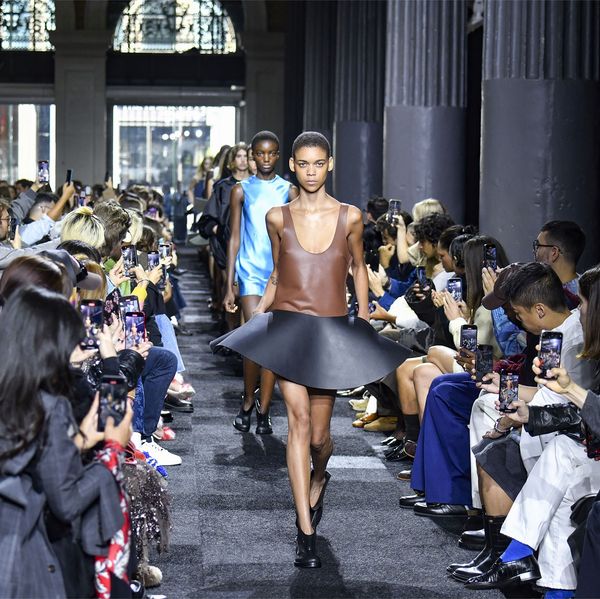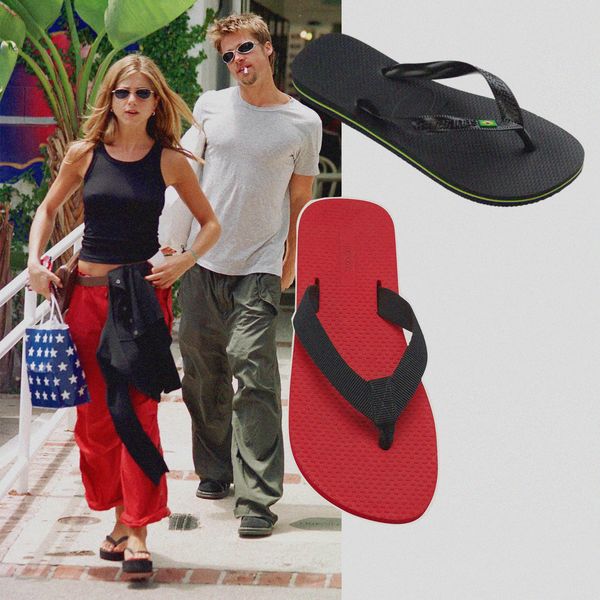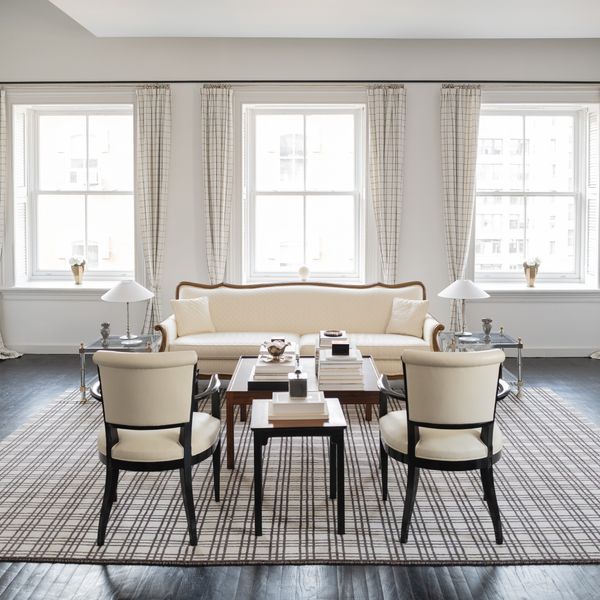Meet the White House, Diddy & CHANEL's Go-To Party Planner
Co-Founder, Van Wyck & Van Wyck. New York.
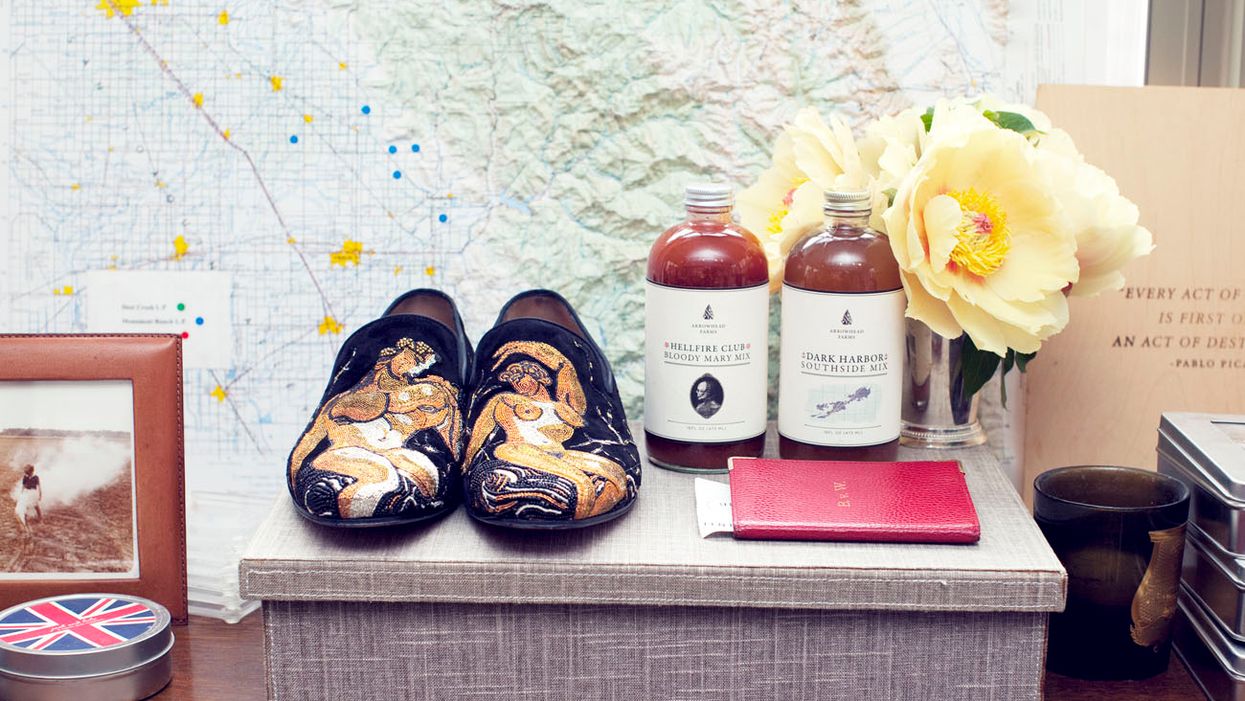
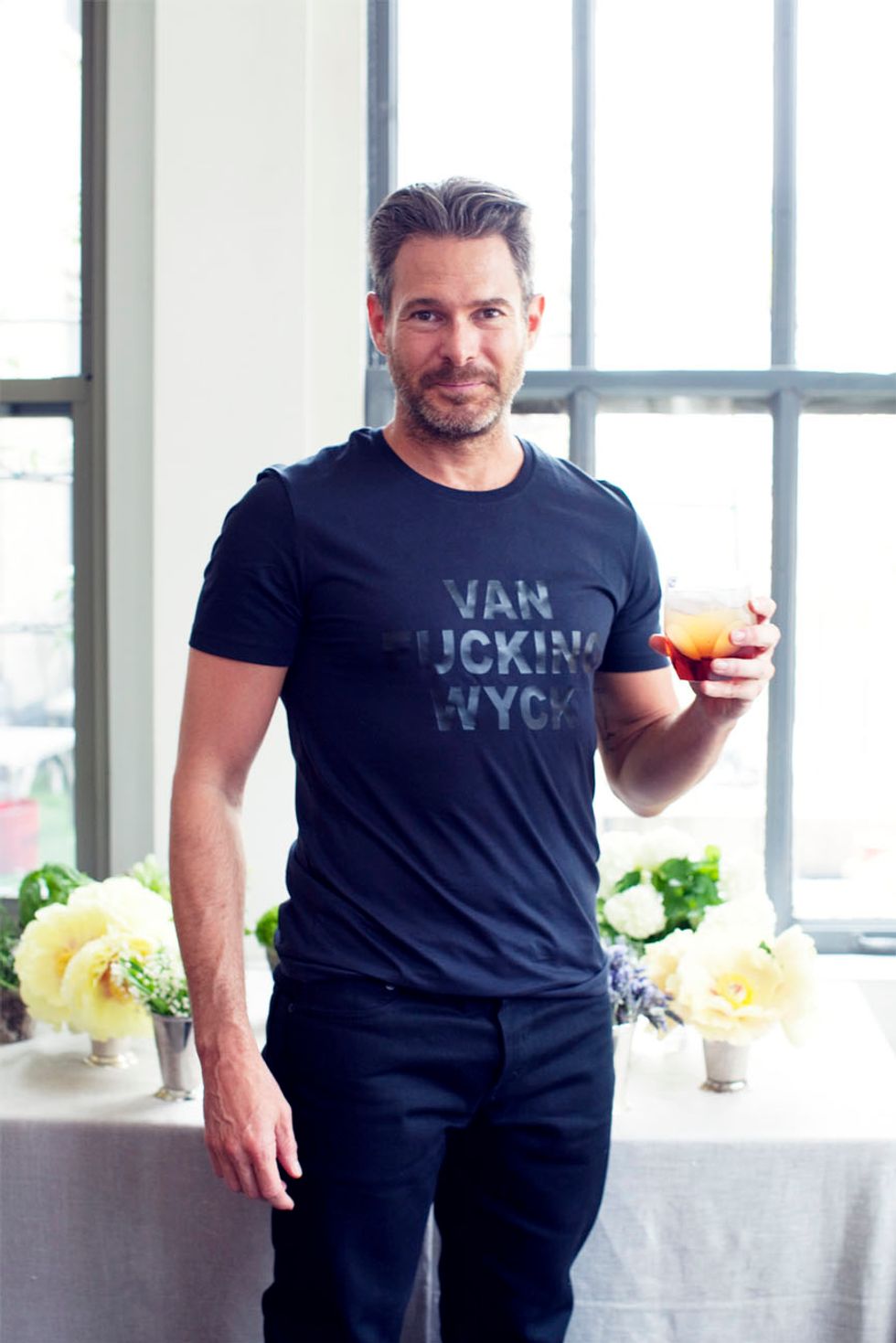
Welcome to Desksides, The Coveteur's series in which we sit down with leaders in various creative fields and figure out how they got there. We guess we could've also named this, "how the hell do I get your cool job," accompanied with a "help me I'm poor" GIF from Bridesmaids, but then we realized going the mononymous route was a little more succinct.
When you consider P.Diddy, The White House and CHANEL part of your steady stream of clientele, and when partying with said clients is part of the job, you pretty much top our list of people we need to know. And when you ‘stumble’ on such a paid gig, well, we’re that much more intrigued. Maybe it’s part and parcel to our ongoing quest to have access to every single noteworthy event, you know, to report back to you guys. Or, it could just be that we’re downright impressed and amazed that these grandiose, over-the-top, uber-exclusive parties somehow come to fruition IRL. Yeah, that’s all the work of Bronson van Wyck—his family biz has been practically creating the party circuit for over a decade. Herein, van Wyck talks making it snow in the Plaza and not being organized (and how he gets away with it), plus he passes down (to us) the best career advice Anna Wintour ever gave him. We’re writing that one down.
ON HOW HE FELL INTO PLANNING HIGH PROFILE EVENTS:
“It was a little bit of an accidental process of elimination, I guess, in which I found out that I had no other marketable skills. [Laughs] I’d gone after school to the state department and when I was there, I was working on a lot of protocol stuff at our embassy in Paris. Then, I went out to LA to act and ended up doing sets on the Paramount lot.
I’d always thrown parties a lot—my mom had thrown parties and my grandparents had thrown parties. We grew up on a farm in north east Arkansas in the Mississippi River Delta, which was quite rural. We didn’t really have any neighbors and we didn’t really have any attractions, except for what we could pull together. When people came to visit, we always felt like we had to ‘put on the dog’ a little bit for them and entertain them. I guess that was part of the culture from being on a farm and being so isolated. Every single day, we would have lunch or dinner together, which might be about 15 or 20 people at my house. Then you added in the mix of people who might’ve come from Little Rock, which was two hours away, or Memphis, which was two hours away. My father’s from New York, so he had friends coming down. Friends from California, or friends from Europe—wherever. We were sort of brought up in this environment where hospitality was lived everyday.
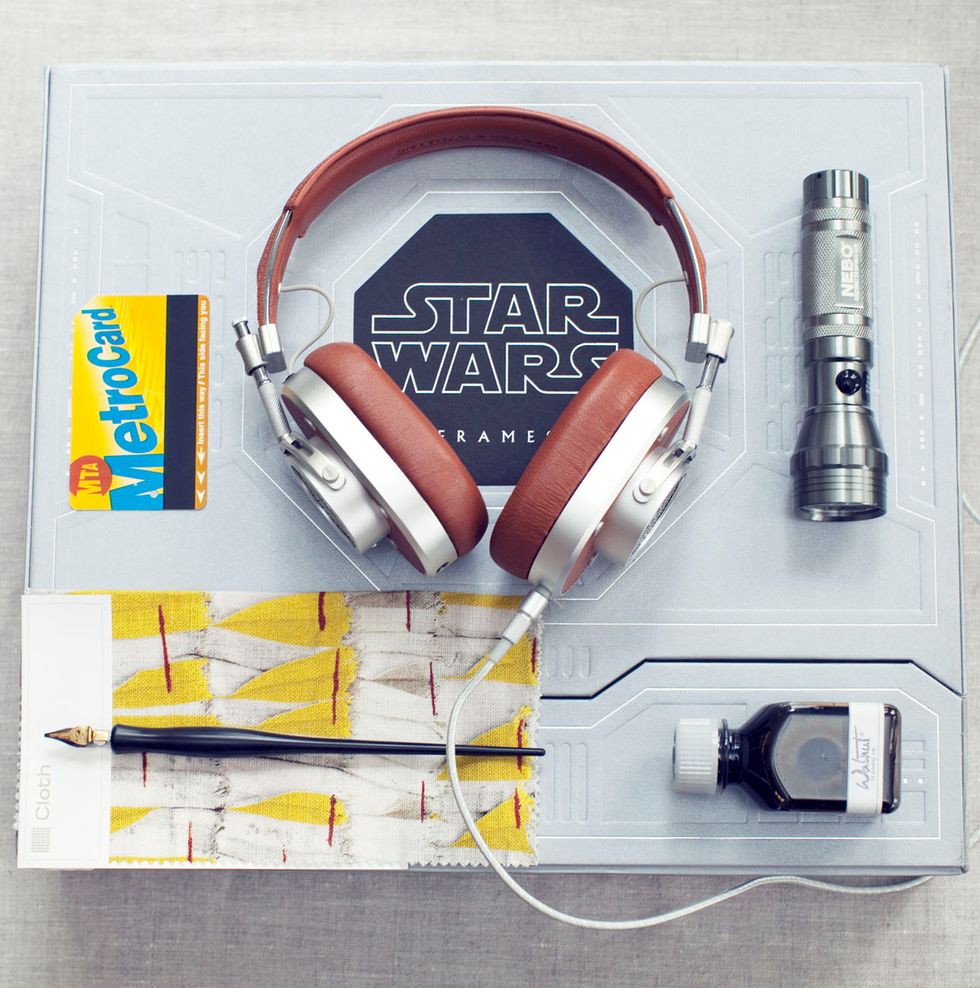
I was out in LA and I was doing set design and a friend called and needed help with her wedding. I called my mom and said, ‘do you want to do this? I can’t do this by myself. Do you want to jump in with me?’ My mom had helped run the farm, but she had really focused on the family, us, the children. Then she got really sick, had cancer and was sick for a couple of years. When she got well, she had a little bit of, ‘well, I want to go do something new’ attitude. She had this yearning and I had a yearning to get out of the film business and then this call came. So we did this wedding and we liked it. That was kind of how we started. I would say for the first year or two, we only ever worked for friends and people we knew. We were getting better at what we were doing and having fun doing it with people we really liked. I still remember the first time we got a phone call from a complete stranger to help with an event. That’s when it really felt like a business, I guess.”
ON WORKING FOR THE WHITE HOUSE:
“I was down in Washington and my sister was working at The White House. I had worked for Hillary prior, so I saw those guys and they said, “What are you doing?” I said, “Well, mom and I are starting this business and we’re going to do events.” They said, “You know, we throw a lot of parties here.” We started helping them, which led to me being the Leader of Events for the Democratic Convention in the year 2000. From that, we started working on the Inauguration for Al Gore. There was that period of five weeks where nobody knew for sure who the President was going to be. We started working on that and then of course, the court decision came down and it was George W. Bush. We went home and then six weeks later, the Inaugural committee for Bush-Cheney came back and said, “Can you guys come back to Washington and help?” So, we ended up doing the Democratic Convention and then the Inauguration of George Bush. That’s about the time I moved to New York."
ON WHY EVENTS ARE THE BEST FORM OF COMMUNICATION:
“I think of an event as experience and experiences are really, at their heart, stories that you live within. We always start with a story: how are people going to feel when they get there and how do we want to make them feel while they’re there? How do we want to change them and how do we want them to feel when they leave? That’s a narrative; it’s a journey. I think there’s a bit of an instinctive quality to what we do, which is what you do when you put yourself in the position of the guest. I think there are common things that humans need in life. We can all enjoy an opportunity for theatricality or grandeur, but we also all want to be safe, warm and protected. If we’re working for a brand, there’s obviously always a story there around the brand. We try to bring that to life with the event and use the tools of hospitality. Events can be a really compelling and persuasive platform for communication. When you’re speaking to people in the language of basic human needs, I think you really get to the core of who they are and you can affect them in ways that you can’t if you’re speaking at them. You look at an advertisement on TV and you respond to it as an advertisement on TV. But if you’re hungry and your hunger is responded to in a certain way, the feeling of pleasure and the feeling of connection—it’s not somebody telling you to feel connected to something, it actually emerges from within you and I think that’s a very powerful tool.”
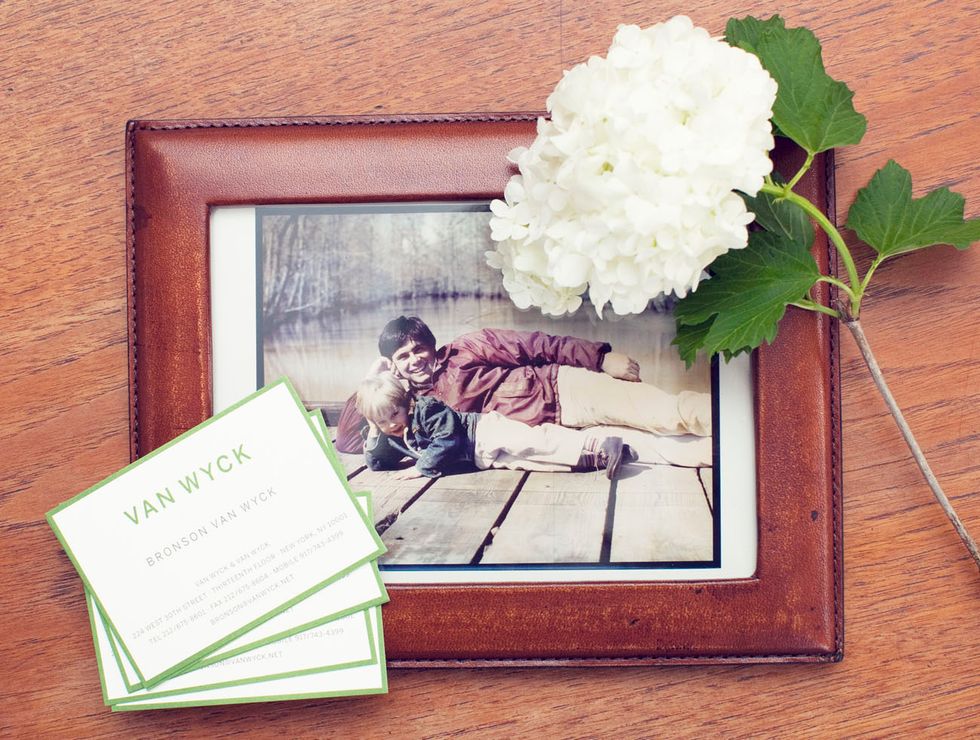
ON HOW THE DIGITAL AGE HAS CHANGED EVENTS:
“I think that it’s made attention spans change. In some ways, it dovetails very well with my own personal idea of hospitality as a narrative or as a story, because I’ve always sort of felt like something should change every 20 minutes. There should be something happening, whether it’s new drinks, a new course, music changes, lighting changes, you go out onto the terrace—whatever it is, some sort of surprise. I think that the need for that is more apparent than ever because people don’t really have an attention span that lasts longer than that. That’s affected things and I think social media has affected entertaining particularly for brands. Now, events are not just about a celebration or an experience for the people who are there, they’re now content in a way.
An event in the past may have been for changing the perceptions of the 200 people who are in the room and then maybe the brand would use that in some way. Now, the 200 people in the room are going to share it, so you’re creating content for those 200 people to distribute to their networks and their relationships. This is really effective for brands—you’re leveraging.
The return on investment that you can get from an event, I don’t think has ever been higher. We’re constantly trying to find ways to augment that and create ready-made stories and ready-made content. Whether it’s the classic fabulous backdrop for a Photo Booth, which maybe you create a set that the guests are in and their taking pictures and sending them out. I’m not talking about a step-and-repeat backdrop that has a logo on it, I’m talking about a rainforest with mangrove trees, if you’re doing something for, let’s say, Everglades Foundation. We’re creating these immersive environments and sets, and as we’re doing it, we’re thinking, how is this going to translate throughout the media, which it will be shared? I think technology has had a big impact.”
ON STAYING ORGANIZED (OR NOT):
“I don’t have a system to be honest with you. I have found a way to surround myself with people who are highly organized and highly precise and highly detail-oriented. I’ve sort of moved through my day with a team who kind of help me categorize information, sort it, determine what’s most important, determine what’s most timely and then act on it.
I still read magazines and I love to read magazines. I have stacks and stacks of magazines and I’m tearing things out of magazines all the time. I sort them all, have little post-its, have folders and I have ideas for lighting, ideas for spaces. From a creative perspective, that’s extremely helpful. There’s something about tearing something out of a magazine, that’s different than finding an image online, for me. I love to read and I was a history major. I’m a little bit—not even a little bit—I’m a pretty huge nerd and so, I get a lot out of books, museums and art and art history, mythology. I love to travel. I guess it’s a little bit different all the time and we just try to stay on top of it. The team here tries to stay on top of me, which they do a pretty good job of."
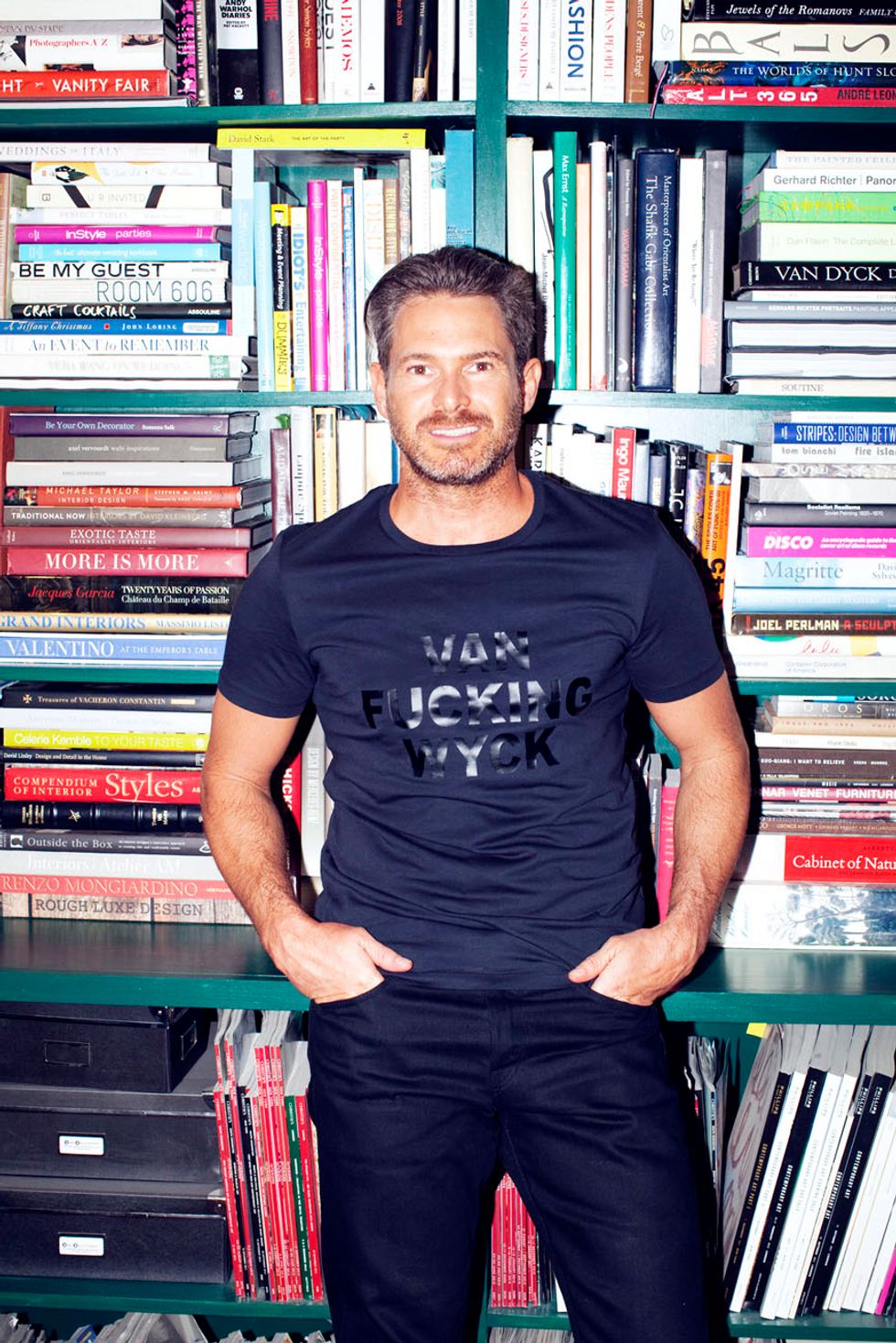
ON CAPTURING A BRAND IN AN EXPERIENCE:
“We work very hard not to have a signature. The reason is that we’re not the principle; we’re not the host. I have thrown parties for myself and I will throw more parties in my lifetime. I don’t need to get my party or my message out on a clients’ event. When we’re working for somebody, it’s 100 percent about them and who they are. That means that when their friends come, they will see a perfect expression of the taste, the sensibility, the aesthetic, the style, the personality of their host, and they will find their host and they will say, ‘Oh my god, this is so you.’ Obviously, when we’re doing it for a brand—you know, if we’re working for Burberry—I want the sensibility, I want every aspect of it to feel as if Christopher Bailey himself came over from Yorkshire and made every decision. In some cases, that is actually how it works.”
ON THROWING EIGHT EVENTS (IN NINE DAYS) FOR THE WHITNEY MUSEUM OPENING:
“The thing that we just did that we were really excited about was we helped with the opening of The Whitney Museum. That was eight events in nine days. Every single night was a new group of people and a new adventure. By the end, the old Breuer building on Madison Avenue was a distant memory. For the people who had come to those events, we had established the new home in their minds.”
ON HOW HE SURPRISED P. DIDDY ON HIS 40TH BIRTHDAY:
“The party was thrown maybe at nine or 10, he came in an hour before and said, “The thing that would really, really take this thing over the top for me is if it somehow snowed at this party.” I said, “You want it to snow here in the ballroom at The Plaza?” He said, “Yeah, yeah! That would be great.” I said, “No problem.” He left, probably having no confidence that it would happen. We managed to find a snow machine and we got that thing set up. He came in about an hour and a half later and I waited until he got right into the middle of that room and then we pushed the button and the snow started coming down from the ceiling. People did not know what to do; he didn’t know what to do. The look on his face—I think probably, moments like that are the best thing in the business. Probably the biggest perk to get to see an expression of unadulterated joy. It’s really wonderful—and to know that you were a part of it."
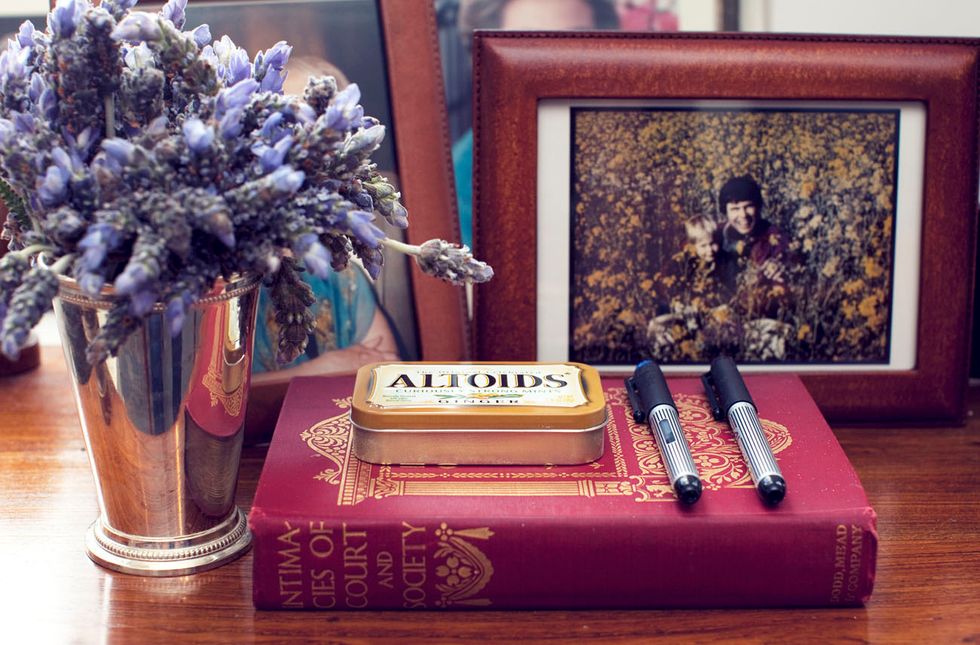
ON THE (OTHER) BIGGEST PERK:
“I get to work with my mom and my sister and really, this larger group of people who have become family to us. I get to work with people I really love, doing something that I really love and watching them doing something that they really love and that they are sublimely talented at. It’s that feeling, almost of going to see your friend in their play or your godson in his soccer match. You’re seeing someone do something that they love to do and you’re getting to share it with them.”
ON HOW A GUESTS’ POV FUELS INNOVATION:
“I go out eight nights a week, so I get to see a lot and that is stimulating. I think when I’m trying to think of new things or what we want to do next, it always really comes back to the guests. I’ll sort of ask myself, Have we taken them as far as we can? Have we given them enough? Do we need to take something away so they can experience something else more fully? Sometimes negative space is just as importance as positive space, you know, creating that sort of air around something so that it really stands out can be really important. I think that it comes back to the guest and it comes back to the hosts and the clients. In the same way that we’re thinking, what more can we do for these guests? We’re also are thinking, how much more can we share on behalf of our client, who is the host? How much more can we enhance the relationship between this person and the people of the guests, who are under their care on our watch?"
ON HOW HE BALANCE WORK…AND RECHARGING:

“Not very well. [Laughs] I think that they inevitably press in up on each other. I think that lines get blurred. A lot of our clients were friends before they were clients, and as we’ve kept going, a lot of our clients have become friends, so there is that overlap. It’s not bad or good, it just is. I think that in terms of time management, I’m able to break away. There’s a seasonality to entertaining in New York and when things are calmer here we may be working during that time in Palm Springs or in the Caribbean. There are gaps and so we really take advantage of that time to get stuff done here that is not immediately events-related and pressing, but needs to happen. It’s also time that we can retreat, recharge, get re-inspired, do something creative.”
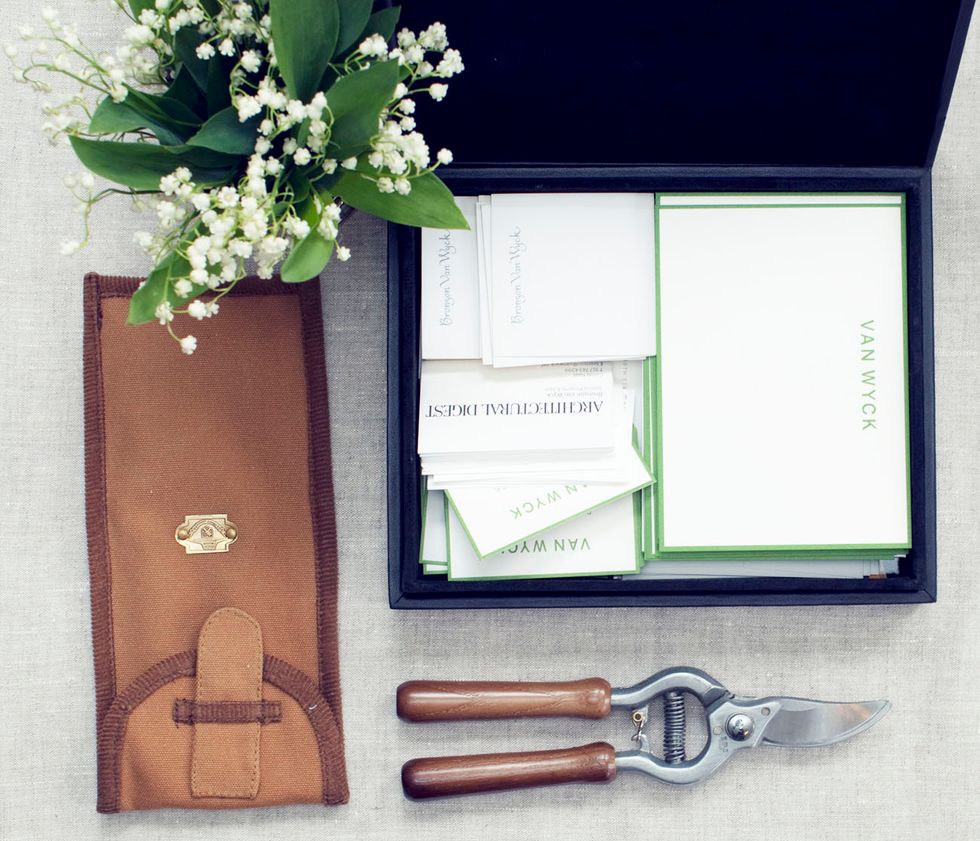
ON THE CAREER ADVICE ANNA WINTOUR GAVE HIM:
“Anna Wintour told me once, that she never leaves a meeting without having made a decision, without having given a decision to her team. That is really, ultimately, the primary responsibility of anybody who is managing a team. I keep that in mind every time I sit down in a meeting. People can’t do their work, they can’t do their job, if they aren’t given the decisions that they need from their leader. I’ve learned to trust my instincts with regard to people and if something doesn’t feel right in work—we can’t have any under-performers here. We’re moving and our clients are moving. We have a really nice, wonderful place to work that’s relaxed in some ways but we’re here to work and here to get it done for our clients. If you want to be able to say, “Certainly,” “Absolutely,” “No problem,” to your client, whatever the request is, you’ve got to be prepared. I guess we’re pretty focused on making sure that the team has that attitude and capability, and they go hand in hand.”
ON DOING WHAT YOU REALLY LOVE:
“The other thing—this is probably the most important thing actually—do what you like to do and figure out a way to get paid for it. If you do that, then people say, ‘you’ll never work a day in your life.’ You will, it’s still work. If you’re bringing passion to what you’re doing, you are always going to do it better than someone who’s just doing it to get it done. I don’t know if I’m the right person to come to for career advice because I feel like I could use career advice everyday. [Laughs]”

